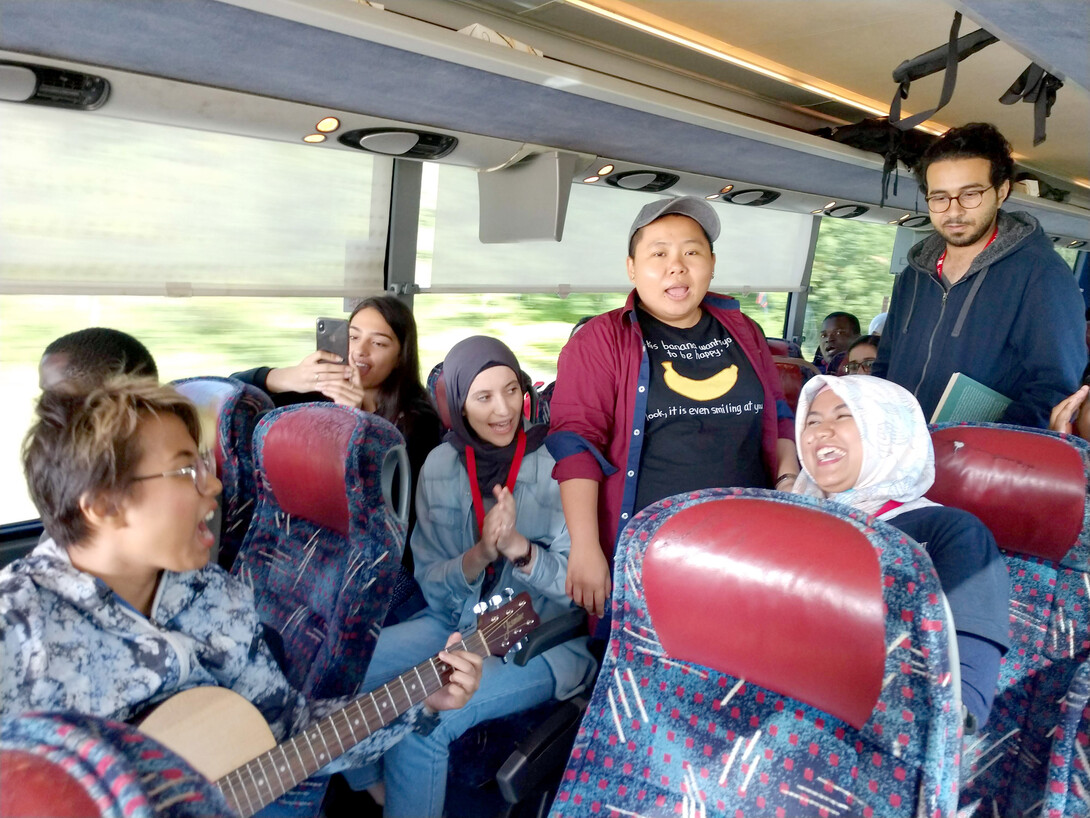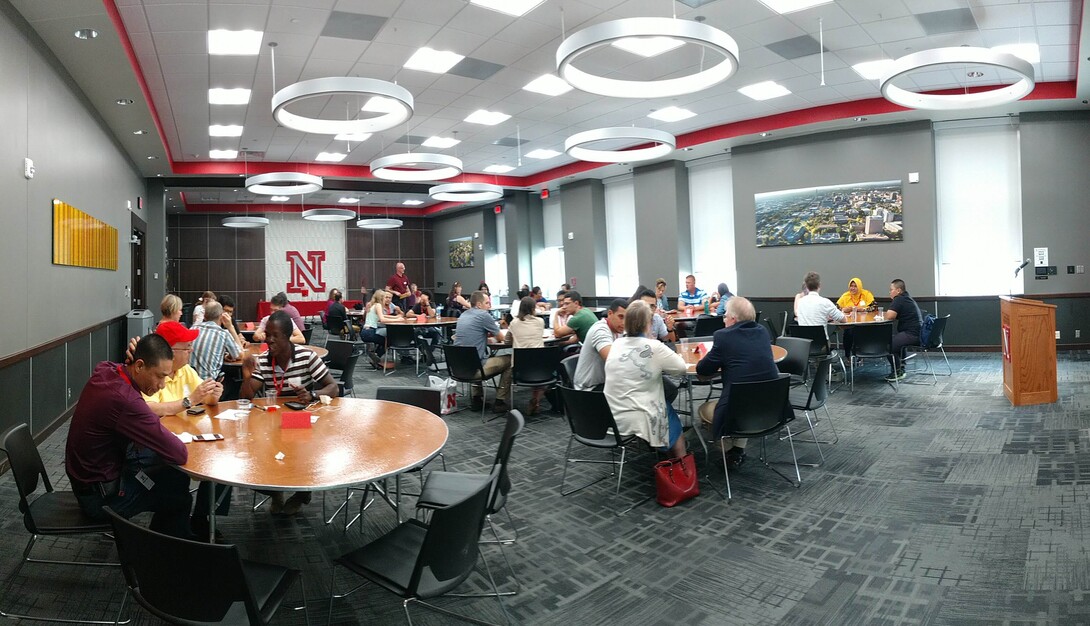
More than a dozen University of Nebraska-Lincoln faculty and campus leaders spent the summer helping international Fulbright scholars strengthen skills — from writing to public speaking to technology — for academic pursuits in the United States.
The U.S. State Department selected Nebraska as one of nine host institutions for the Fulbright English for Graduate Studies Program. The program prepares international graduate students through an immersive pre-academic experience that includes classes in English writing and speaking, as well as field trips to cultural touchstones and civic engagement with local partner organizations.
This summer’s roster brought 27 scholars from 17 countries to Nebraska. Now, those scholars are enrolling in graduate programs across the United States.
To prepare the Fulbright scholars, 15 Husker faculty helped with the program, with main teaching duties completed by Emily Herrick, Tim Janda and Jane Miller, all instructors in Programs in English as a Second Language.

In addition to classes, which ran the gamut of writing and speech to politics and time management, the scholars journeyed on field trips to Omaha’s Henry Doorly Zoo, Kansas City and a Lincoln Saltdogs baseball game. Each trip was designed to help the Fulbright scholars learn about midwestern and American culture. Scholars also spent time doing various civic engagement activities throughout Lincoln.
“We build the civic engagement focus into all of our programs,” Chris Dunsmore, director of the English as a Second Language program, said. “Getting them out into the community with native language speakers, not just their faculty and instructors, drives language ability. It also gives them a more genuine cultural experience that we can’t simulate.”
The Fulbright pre-academic program shares similar themes with fall and spring programs offered by English as a Second Language faculty, Dunsmore said. The main difference is the summer program is much more intense.
“It’s a rigorous experience for the scholars and the faculty,” he said. “It’s a great opportunity for our faculty to work with these high-caliber students.”

Dunsmore also worked with additional faculty members to host mixers with the scholars, where they could have a dialogue about academics, and a graduate student panel where they gained additional perspectives. These activities added valuable knowledge for the students, Dunsmore said.
Having the scholars on campus is one of the reasons Sonia Feigenbaum, associate vice chancellor for global affairs, led the effort to bring a Fulbright pre-academic program to Nebraska.
“Scholars from Europe, Africa, Asia and the Middle East have contributed to enriching our campus’s understanding of the world, and they have discovered Nebraska’s academic excellence and hospitality,” Feigenbaum said. “They will return to their home countries as our ambassadors, speaking to the outstanding support and academic content they experienced while on campus.”
Feigenbaum noted that Nebraska will very likely host the program for four more years, as the grant from the Department of State is renewable for five years.
Along with running the Fulbright instruction, Programs in English as a Second Language faculty also welcomed a group of Japanese high schoolers for two weeks.







